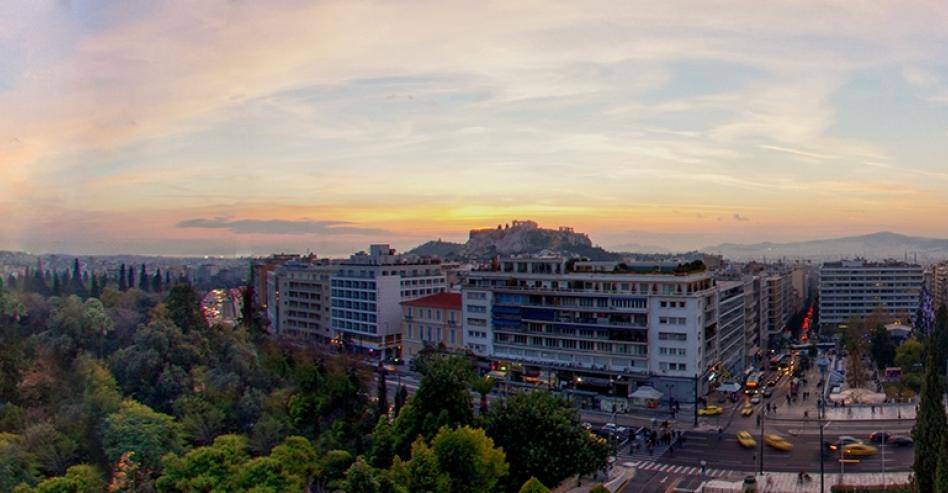The “Curing the Limbo” project capitalises on Athens’ vibrant civil society to help refugees and the local unemployed to overcome the stage of inertia. The programme develops around a circular “gift” system, addressing the twofold issue of both housing and inactivity: Refugees receive affordable living spaces from the city’s available housing stock and in return, they work for the public benefit, supporting the needs of the local community and participating in citizen-led activities that improve quality of life in Athenian neighborhoods. Beneficiaries receive on-the-job training supervised by the University of Athens, which includes language learning, psychosocial support, “street law” knowledge and other basic social and soft skills. These skills are tailored to the beneficiaries’ needs and are offered in an integrated way, during which other parallel activities are also gradually introduced. The modality of exchange is developed around the incentives given both to tax-paying proprietors of currently empty spaces as well as to the beneficiaries through their integrated inclusion in the city.
The project is a partnership between:
- Municipality of Athens
- Athens Development and Destination Management Agency S.A
- National and Kapodistrian University of Athens
- Catholic Relief Services – United States Conference of Catholic Bishops Greek Branch
- International Rescue Committee (IRC Hellas)
The role of Open Lab Athens
In close collaboration with CRS, OL: Athens aims at utilizing the Technical Steering Group (TSG) in the context of the project ‘Curing the Limbo’ as a platform for collating the various methodologies and deliverables of the project’s partners and contribute to the design and development of a sustainable and socially just social housing model. More specifically, this will be achieved through:
- putting together a list of participants for the TSG (to be agreed with the project’s partners) that can contribute to the various technical, social and political aspects of delivering a novel and scalable social housing model — e.g. local authorities, representatives from housing initiatives, platform economy technologists, social and solidarity economy activists and initiatives in the city of Athens, open source communities etc.;
- designing the format and the content of the TSG meetings throughout the project’s lifecycle, in an iterative manner and departing from a participatory design and action research methodology, so as to ensure coordination among different partners and pillars, sharing and merging of different findings and methodologies, and intervening in specific and holistic ways towards the development of a more generic social housing model. To design these meetings, we will draw from our rich research and active engagement in SSE practices (e.g. time banks, exchange/cyclical economy, etc.) and as a result contribute to the ‘exchange program’ of the TSG along the lines of already innovative grassroots practices emerging in communities around the city;
- delivering the meetings throughout the project’ lifecycle, while being responsive to the deliverables of each project partner and iterative in adjusting the format and content of each meeting to emerging needs
- evaluating the produced social housing model in collaboration with the TSG members and invited participants in terms of its replicability in other (than Greece’s) contexts, its technical viability and its social sustainability. This for example might involve the development of a set of design processes able to be tested in other settings and/or technologies for the scaling our of such social housing models.
For more information see here
